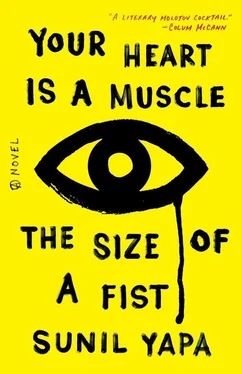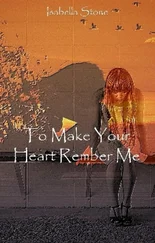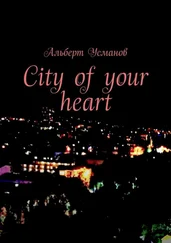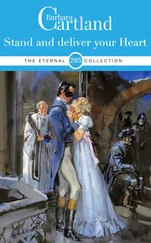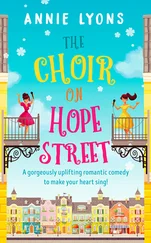Edie, whose gray hair shone damply, rain running across her deeply lined face, so much worrying, so much thinking and talking and planning, the mark of all those years engaged in the struggle, and yet they seemed not to make her old, but to light her from within, to saturate every word she spoke. Edie, who had been an AIDS activist back when people still thought you caught it from toilet seats.
And what about John Henry? John Henry, her first trainer in nonviolence. John Henry who first gave her the courage to go into nonviolent lockdown when King had still been a red-eyed revolutionary living ten to a house out in West Seattle.
John Henry who taught her the necessity of patience and struggle.
John Henry who taught her how people changed their world — small brave groups willing to risk everything. Willing to sacrifice everything. John Henry who taught her the meaning of ordinary daily courage.
No, not John Henry and his windy mattress in whatever abandoned building he had most recently decided to claim as home. Not John Henry and his political hands, his political beard, his political mouth that kissed her hips gently as if asking is this okay, even as he sucked and slurped hungrily in the cool clear light of another activist squat.
The Doctor saying now, “You’re entitled to believe what you want to believe. But for me walking among those trees, the smell of wet earth, the light filtering down through the canopy, the branches bearded with moss? It was so quiet and peaceful you could hear individual raindrops dripping. Say what you want. For me that place was as close as I come to believing in a god. That place, among those trees, it was a holy place. It was sacred.”
“But our fight isn’t with the loggers,” Edie said.
“Or the cops,” John Henry said.
“If you bring class into the equation,” Edie said, “then they’re victims of the same political-economic system. If we want this to be a truly democratic revolution, we need to understand our fight is not with the working class at all.”
King nodded. She believed in the power of love. Love was the animating force that filled her body. She let it move her arms, her legs, her lungs. It was love that governed the workings of her mouth, the words called forth from her larynx. And yet it was a weight on her heart, pressing down, because while she knew any one of these folks would joyfully join their brothers and sisters in lockdown, to let the force of their community confront face-to-face the force of the police, King herself was less eager. She knew what could happen. She was not afraid to take the gas — it was just that in some way her love for these people made her want it to not be so goddamn necessary.
For the country to change, did blood always have to be spilled?
One short for lockdown. And who would it be?
When the Doctor had started talking about holy places, a memory had stolen unbidden into Victor’s mind. A memory of his mother and father’s basement. A memory of his mother who died when he was still a boy. She absconded for better climes, set sail for the never-never — but he didn’t, truthfully, harbor any grudge against the shitball world for taking her. Nor her for letting it. Because when Mom jumped ship and left a half-orphaned brown boy at sea, the other thing she left behind balanced the scales in Victor’s mind. Boxes and boxes of books. Cardboard boxes of books stacked floor to ceiling in the darkest, dustiest corner of the basement.
Victor’s mother had been an activist, an unrepentant hippie, a teacher and an artist, a black woman who had a child with a white man, and when he left, years on she married a different white man. Whatever any of that meant, she had been a woman who had a heart which could not turn away any stray, any of the bad-luck bodies the world kicked around, and for that Victor loved her and did not worry once about the first father who never was. His mother was father and mother both. A tremendous force that even he recognized. She was also a painter and there in her studio, in the girdered half-light beneath the underpass, his mother had painted abstract acrylics, huge canvases of a shimmering gray which she then defaced with a stub of charcoal, the first thing that found her hand. Victor had never known quite what to make of his mother’s art, but he loved her for it, loved watching as she scrawled collapsed apartment blocks and smoldering cars, McDonald’s crushed beneath the rubble, trees growing from the craters. Working fast, she drew stick-figure dogs eating garbage in the rain, except the dogs were maybe people.
She painted a canvas gray and then sketched great sailing ships; drew dark outlines of exploded city buses, charred bodies climbing from the windows, throngs of black charcoal people in piles of slashes and lines, wide gaping charcoal mouths, black charcoal X’s for the sightless eyes of the dead.
Victor had decided when he was about ten that the dogs eating garbage were definitely people.
His mother, the woman who had raised him and taught him, holding her stub of charcoal and thinking, wiping her chin with one ash-stained wrist, the woman whose blood ran in his veins, physically present on some other continent of being and emotion while gulls dive-bombed from the darkness of the underpass, falling wing-tucked toward the water. And Victor on a paint-splattered couch eating a crust of bread and reading and watching and loving her.
And this was why he had traveled; this was the disappointment he felt when he looked in the guidebook and trooped off with his pack to see another crumbling ruin, blurry-headed in the noonday sun. He traveled, in some way, to discover who he was, to recognize himself in the world because, a half-black brown boy, not-quite-white, he did not see it. But what he found was the inside of some empty ruin, cool and dim, and outside in the sun, ragged human shapes littered along the path like leaves.
The year she died Victor did serious time among the books. He schooled himself from the boxes. He liked to read. He liked crashing down there in the basement with the smell of concrete and earth, liked reading his mother’s old books, liked the idea that he had inherited more than his dark skin and dark hair from the woman who disappeared.
Fanon, Freire, Guevara. James Baldwin and bell hooks. There was poetry by Ernesto Cardenal and Oscar Romero. John Berger. A set of strange novels called Memory of Fire —part journalism, part fiction, part mystic trance — by a Uruguayan writer named Eduardo Galeano.
Sometimes, late into the night, he could swear he felt something like his mother’s presence among the books — some sense of her touch in the smell of ink and paper, the stained pages, the occasional fingerprint smudged with paint. It was almost as if she had never left.
Victor, of course, never failed to fire a monster joint on these underground missions. And there he would sit, reading. He liked how those books made him feel, the books and the weed, his brain humming with knowledge, an odd and lovely sort of expansion feeling these threads of words that stretched across continents and decades, a sort of feeling that he, too, was stretched and flattened, his brain spread like a map across the world as if sending tendrils of connection creeping out to places and people far removed.
He felt somehow close to his mother in these moments. As if she were the one speaking to him. And for a moment the loneliness that was always with him left him alone. It was a feeling of indeterminate shape, sometimes resembling a faucet that would not stop and the drain which caught the water, other times a boat made of newspaper folds turning slowly in a rain-soaked gutter, but that strange new knowledge of the world brought home by the boxes and the books pushed it a step back. Gave him some room to breathe. After all, what could be better, Victor thought in his basement lair, than the words of dead or distant teachers for a boy with a dead mother?
Читать дальше
